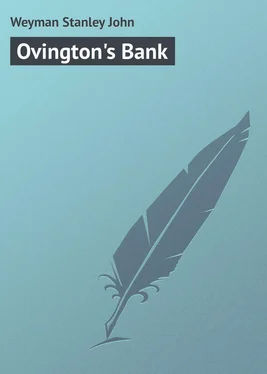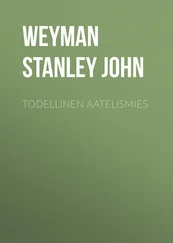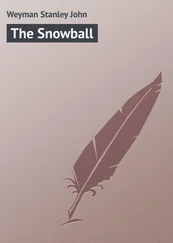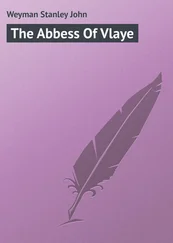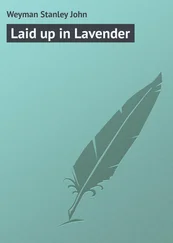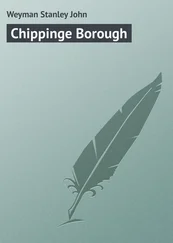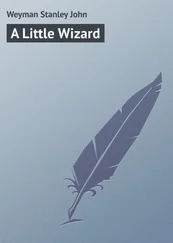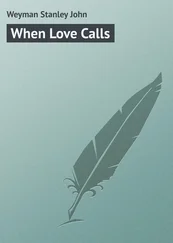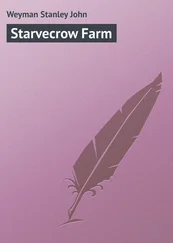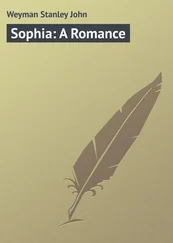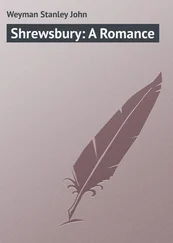Stanley Weyman - Ovington's Bank
Здесь есть возможность читать онлайн «Stanley Weyman - Ovington's Bank» — ознакомительный отрывок электронной книги совершенно бесплатно, а после прочтения отрывка купить полную версию. В некоторых случаях можно слушать аудио, скачать через торрент в формате fb2 и присутствует краткое содержание. Издательство: Иностранный паблик, Жанр: foreign_language, foreign_prose, на английском языке. Описание произведения, (предисловие) а так же отзывы посетителей доступны на портале библиотеки ЛибКат.
- Название:Ovington's Bank
- Автор:
- Издательство:Иностранный паблик
- Жанр:
- Год:неизвестен
- ISBN:нет данных
- Рейтинг книги:5 / 5. Голосов: 1
-
Избранное:Добавить в избранное
- Отзывы:
-
Ваша оценка:
- 100
- 1
- 2
- 3
- 4
- 5
Ovington's Bank: краткое содержание, описание и аннотация
Предлагаем к чтению аннотацию, описание, краткое содержание или предисловие (зависит от того, что написал сам автор книги «Ovington's Bank»). Если вы не нашли необходимую информацию о книге — напишите в комментариях, мы постараемся отыскать её.
Ovington's Bank — читать онлайн ознакомительный отрывок
Ниже представлен текст книги, разбитый по страницам. Система сохранения места последней прочитанной страницы, позволяет с удобством читать онлайн бесплатно книгу «Ovington's Bank», без необходимости каждый раз заново искать на чём Вы остановились. Поставьте закладку, и сможете в любой момент перейти на страницу, на которой закончили чтение.
Интервал:
Закладка:
"But you are not hurt? They did pass!" The horror of that which might have been, of that which had so nearly been, overcame him anew, gave a fresh poignancy to his tone. "You are sure-sure that you are not hurt?"
"No, I am not hurt," she whispered. "But I am very-very frightened. Don't speak to me. I shall be right-in a minute."
"Can I do anything? Get you some water?"
She shook her head and he stood, looking solicitously at her, still fearing that she might swoon, and wondering afresh what he ought to do if she did. But after a minute or so she sighed, and a little color came back to her face. "It was near, oh, so near!" she whispered, and she covered her face with her hands. Presently, and more certainly, "Why did you have it-at full cock?" she asked.
"God knows!" he owned. "It was unpardonable. But that is what I am! I am a fool, and forget things. I was thinking of something else, I did not hear you come up, and when I found you there I was startled."
"I saw." She smiled faintly. "But it was-careless."
"Horribly! Horribly careless! It was wicked!" He could not humble himself enough.
She was herself now, and she looked at him, took him in, and was sorry for him. She removed her hands from the rail, and though her fingers trembled she straightened her bonnet. "You are Mr. Ovington?"
"Yes. And you are Miss Griffin, are you not?"
"Yes," smiling tremulously.
"May I help you over the stile? Oh, your basket!"
She saw that it lay some yards away, blackened by powder, one corner shot away; so narrow had been the escape! He had a feeling of sickness as he took it up. "You must not go on alone," he said. "You might faint."
"Not now. But I shall not go on. What-" Her eyes strayed to the wood, and curiosity stirred in her. "What were you looking at so intently, Mr. Ovington, that you did not hear me?"
He colored. "Oh, nothing!"
"But it must have been something!" Her curiosity was strengthened.
"Well, if you wish to know," he confessed, shamefacedly, "I was looking at those snowdrops."
"Those snowdrops?"
"Don't you see how the sunlight touches them? What a little island of light they make among the brown leaves?"
"How odd!" She stared at the snowdrops and then at him. "I thought that only painters and poets, Mr. Wordsworth and people like that, noticed those things. But perhaps you are a poet?"
"Goodness, no!" he cried. "A poet? But I am fond of looking at things-out of doors, you know. A little way back" – he pointed up-stream, the way he had come-"I saw a rat sitting on a lily leaf, cleaning its whiskers in the sun-the prettiest thing you ever saw. And an old man working at Bache's told me that he-but Lord, I beg your pardon! How can I talk of such things when I remember-?"
He stopped, overcome by the recollection of that through which they had passed. She, for her part, was inclined to ask him to go on, but remembered that this, all this was very irregular. What would her father say? And Miss Peacock? Yet, if this was irregular, so was the adventure itself. She would never forget his face of horror, the appeal in his eyes, his poignant anxiety. No, it was impossible to act as if nothing had happened between them, impossible to be stiff and to talk at arm's length about prunes and prisms with a person who had all but taken her life-and who was so very penitent. And then it was all so interesting, so out of the common, so like the things that happened in books, like that dreadful fall from the Cobb at Lyme in "Persuasion." And he was not ordinary, not like other people. He looked at snowdrops!
But she must not linger now. Later, when she was alone in her room, she could piece it together and make a whole of it, and think of it, and compass the full wonder of the adventure. But she must go now. She told him so, the primness in her tone reflecting her thoughts. "Will you kindly give me the basket?"
"I am going to carry it," he said. "You must not go alone. Indeed you must not, Miss Griffin. You may feel it more by and by. You may-go off suddenly."
"Oh," she replied, smiling, "I shall not go off, as you call it, now."
"I will only come as far as the mill," humbly. "Please let me do that."
She could not say no, it could hardly be expected of her; and she turned with him. "I shall never forgive myself," he repeated. "Never! Never! I shall dream of the moment when I lost sight of you in the smoke and thought that I had killed you. It was horrible! Horrible! It will come back to me often."
He thought so much of it that he was moving away without his gun, leaving it lying on the ground. It was she who reminded him. "Are you not going to take your gun?" she asked.
He went back for it, covered afresh with confusion. What a stupid fellow she must think him! She waited while he fetched it, and as she waited she had a new and not unpleasant sensation. Never before had she been on these terms with a man. The men whom she had known had always taken the upper hand with her. Her father, Arthur even, had either played with her or condescended to her. In her experience it was the woman's part to be ordered and directed, to give way and to be silent. But here the parts were reversed. This man-she had seen how he looked at her, how he humbled himself before her! And he was-interesting. As he came back to her carrying the gun, she eyed him with attention. She took note of him.
He was not handsome, as Arthur was. He had not Arthur's sparkle, his brilliance, his gay appeal, the carriage of the head that challenged men and won women. But he was not ugly, he was brown and clean and straight, and he looked strong. He bent to her as if he had been a knight and she his lady, and his eyes, grey and thoughtful-she had seen how they looked at her.
Now, she had never given much thought to any man's eyes before, and that she did so now, and criticised and formed an opinion of them, implied a change of attitude, a change in her relations and the man's; and instinctively she acknowledged this by the lead she took. "It seems so strange," she said half-playfully-when had she ever rallied a man before? – "that you should think of such things as you do. Snowdrops, I mean. I thought you were a banker, Mr. Ovington."
"A very bad banker," he replied ruefully. "To tell the truth, Miss Griffin, I hate banking. Pounds, shillings, and pence-and this!" He pointed to the country about them, the stream, the sylvan path they were treading, the wood beside them, with its depths gilded here and there by a ray of the sun. "A desk and a ledger-and this! Oh, I hate them! I would like to live out of doors. I want" – in a burst of candor-"to live my own life! To be able to follow my own bent and make the most of myself."
"Perhaps," she said with naïveté, "you would like to be a country gentleman?" And indeed the lot of a country gentleman in that day was an enviable one.
"Oh no," he said, his tone deprecating the idea. He did not aspire to that.
"But what, then?" She did not understand. "Have you no ambition?"
"I'd like to be-a farmer, if I had my way."
That surprised as well as dashed her. She thought of her father's tenants and her face fell. "Oh, but," she said, "a farmer? Why?" He was not like any farmer she had ever seen.
But he would not be dashed. "To make two blades of grass grow where one grew before," he answered stoutly, though he knew that he had sunk in her eyes. "Just that; but after all isn't that worth doing? Isn't that better than burying your head in a ledger and counting other folk's money while the sun shines out of doors, and the rain falls sweetly, and the earth smells fresh and pure? Besides, it is all I am good for, Miss Griffin. I do think I understand a bit about that. I've read books about it and I've kept my eyes open, and-and what one likes one does well, you know."
Читать дальшеИнтервал:
Закладка:
Похожие книги на «Ovington's Bank»
Представляем Вашему вниманию похожие книги на «Ovington's Bank» списком для выбора. Мы отобрали схожую по названию и смыслу литературу в надежде предоставить читателям больше вариантов отыскать новые, интересные, ещё непрочитанные произведения.
Обсуждение, отзывы о книге «Ovington's Bank» и просто собственные мнения читателей. Оставьте ваши комментарии, напишите, что Вы думаете о произведении, его смысле или главных героях. Укажите что конкретно понравилось, а что нет, и почему Вы так считаете.
